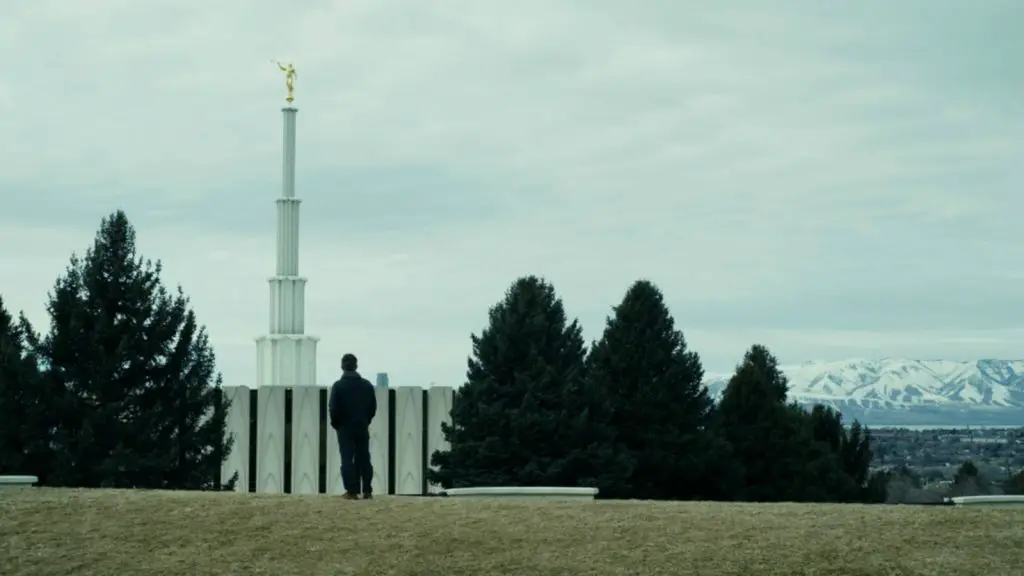
Last year seemed to be the big year for Mumblecore and it seemed like that last year might be the big send off. But this year, a bunch of the same group filmmakers are back again. What’s your decision making process in terms of that?
Matt Dentler: Well, we just try to program the best films and I know that sounds kind of vague and arbitrary but it’s true. And thankfully people like Joe (Swanberg) and the Duplass Brothers and people like that are still making films and, more importantly, the films they’re making are really good. It’s not like we’d ever be discouraged to play any of their films if we like them but that’s not to say like, Swanberg has a free pass and we’re just going to play every movie he makes, I think it’s just worked out that way that each one he makes has been so good and so completely different from the one that came before it. “Nights and Weekends” is completely different from any of the three others he’s made and that sort of thing makes us really excited. The same with “Baghead.” It’s a very different film from what people saw in “The Puffy Chair.”
Do you think that SXSW will continue with these sorts of films or have a constant kind of, mumblecore theme?
No, because like, you’ll never find the word “mumblecore” on our website or program book. People have approached us and asked if we wanted to do a mumblecore panel or something and we just say “no.” It’s just silly for us because these films make up such a small percentage of the overall program.
I agree about what a small amount of programming space these types of films take up, but don’t you feel that many of these films are getting a majority of the buzz on blogs and film related websites?
Yeah, definitely and we’re really excited for the filmmakers and glad we can contribute in helping them get that exposure. People always ask me what this whole mumblecore thing means and I tell them it means that a lot of these kinds of films that weren’t getting any kind of attention are getting attention now by getting grouped into this segment of filmmakers.
I’ve seen many of the mumblecore related films you have programmed over the years, but what do you think sets these films apart? A lot of people who see these films might say, “this is really basic and there’s nothing to it. I could do this.” What do you think sets these films and filmmakers apart from that?
Right. Well, I can tell you that based on the submissions we received, that’s not necessarily the case. I think this year more than any other we’ve received films that are trying to fit into that kind of mumblecore aesthetic and a lot of them didn’t quite get it, they didn’t quite achieve that. And while it may seem like “anyone can do this” you still need to have the old-school innovation and ingenuity that is necessary for any kind of filmmaking. And I think what’s great about these films is that they inhabit a world that would work no matter the budget or the fact that there’s non-professional actors. I mean it’s great that these filmmakers can be inspiring to a younger group of filmmakers and there is a lot of films that we’re premiering this year from a lot of first time feature filmmakers that I think “hey, this guy could be the next Aaron Katz or the next Joe Swanberg. And I don’t want to be specific and set up false expectations, but I think there will be films that will be kind of obvious where they’ll say “oh, this looks like ‘Quiet City’ or this looks like ‘Hannah Takes the Stairs’” but is distinct and different in it’s own way. The last thing we’d ever want to do is program like, a “Quiet City” rip off.
Have you gotten any kind of backlash of flak for all the mumblecore related programming and films?
Oh yeah, totally. There’s been a lot of people who’ve made all sorts of derogatory comments about this, that and the other thing. Or you know, “there’s too much mumblecore” which is funny to me because like I said, it makes up such a small portion of the program that for people to get obsessed with these films only means they aren’t looking at the program as a whole. Or it’s people that have never even been to SXSW and anyone who’s been here knows there’s a ton of other kinds of films here. Part of why these films tend to get a lot of attention is because, yeah, these people are friends and they collaborate together and that tends to have a kind of snowball effect of collaboration where more and more attention and more and more critical mass develops because these guys are always hanging out together.
Did you feel any sort of conflict of interest or get questions like that questioning your involvement with Swanberg’s web-series “Butterknife” and having Joe’s new film and Mary Bronstein’s film (“Yeast”) and Frank Ross’s film “Present Company” in the festival this year?
No, because my involvement with “Butterknife” is so minimal. I mean, Joe wanted to make me executive producer and I was so not worthy of that title because I helped a little bit but I feel like to take any sort of credit in anything, you really have to earn it. So I actually asked him to take my name off as executive producer so now I just have a “special thanks” which is great. So in that sense, I’m not really that involved with “Butterknife.” But in addition to that for me it doesn’t feel like any sort of conflict of interest because “Butterknife” isn’t something I ever saw or worked on or worked with. And some of these films that we’re playing like Joe’s film, Mary’s film, Frank’s film, they’re completely unrelated to the whole “Butterknife” thing. It just happens to be some of the people involved have films here so, no, I don’t see a real conflict of interest.
An additional “Butterknife” wrinkle involves Spout.com’s support and love for all things Swanberg, which led to the criticism against the site for promoting Joe’s work in an effort to boost and promote “Butterknife,” which Spout distributes online. Spout responded to the criticism, Wherein contributor Paul Moore said:
“For Spout, some may say it’s a conflict of interest for a company employing ardent supporters writing about Swanberg to then distribute his work online, as if our support has been engineered for two years to help Butterknife. So, before the record is even bent, I’ll set it straight.
We have felt since seeing Kissing on the Mouth that Joe is a filmmaker to watch. Trying to spread the word about his movies is what we do. There was no talk of distributing his work until recently. That said, after Spout’s promotion of Four Eyed Monsters in June, Joe contacted me and said he had an idea for a web series he would be shopping around later in the year. In September, he shot the first four episodes of Butterknife and showed me a rough cut. It was unanimous here, everybody wanted to show it and we bought the Internet distribution rights.”
Since much of the action and interconnectivity seems to swirl around Joe Swanberg, we gave him a call to discuss this year’s goings on at SXSW.
Don’s interviews continue with SXSW filmmaker Joe Swanberg in Part Three of Something to Mumble About>>>

